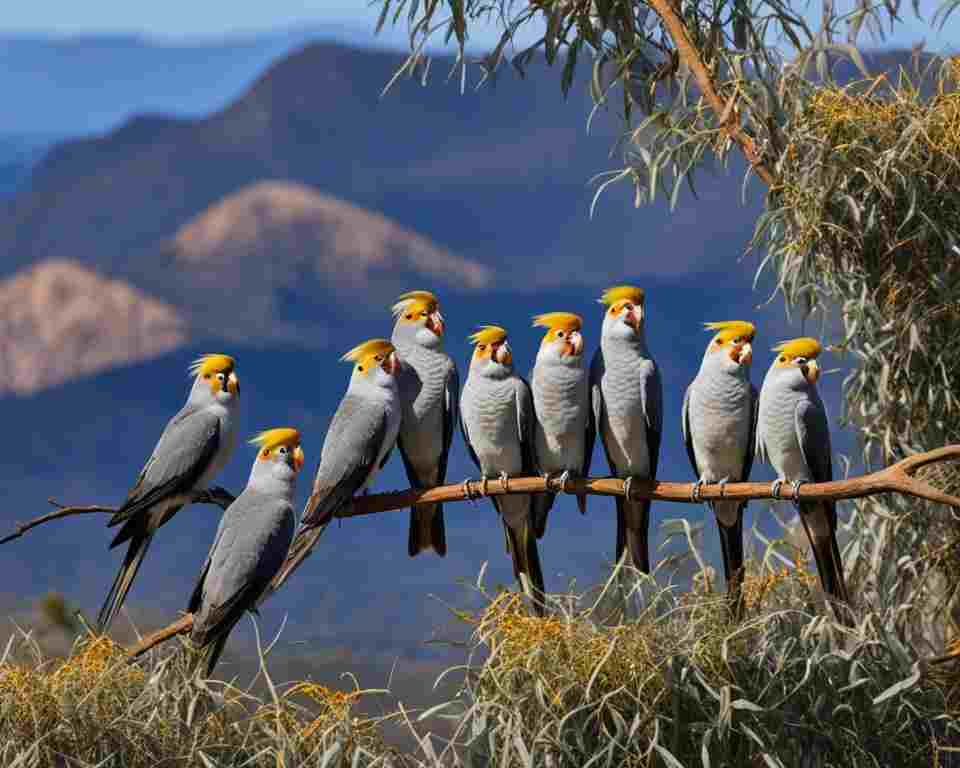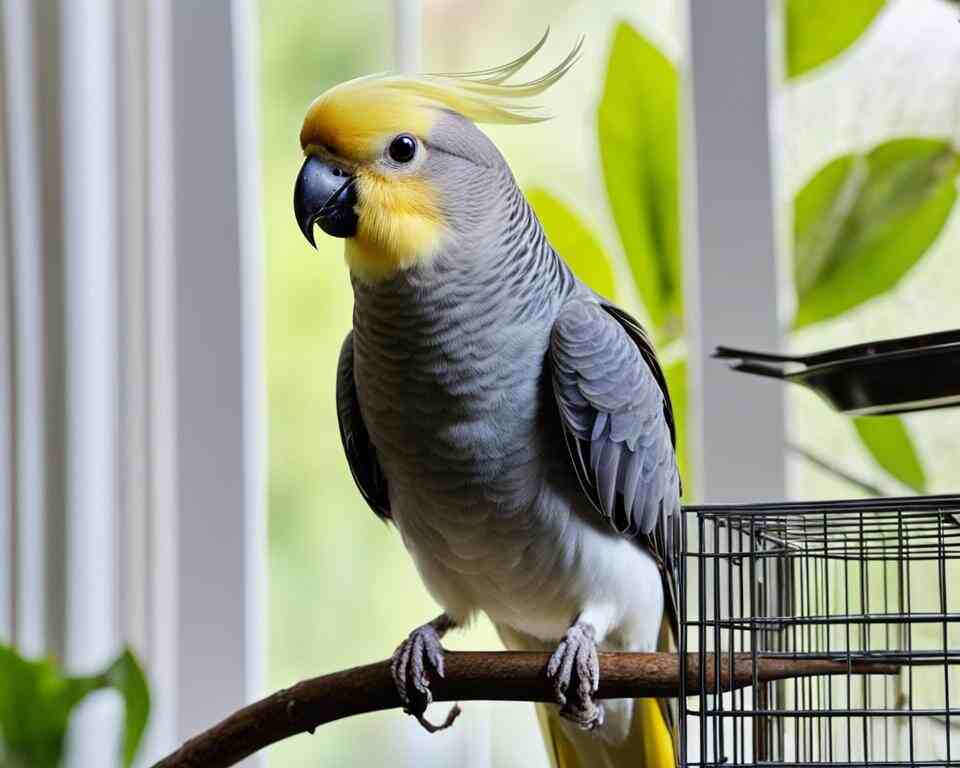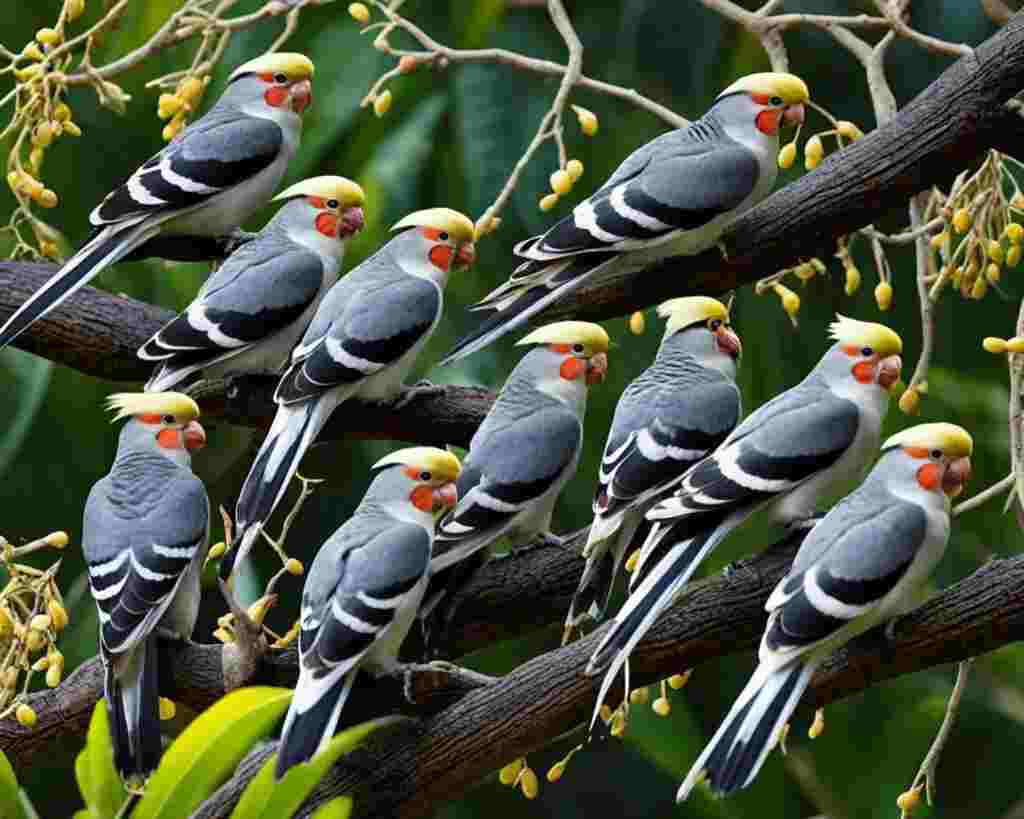As a bird enthusiast, I have always been fascinated by the wide variety of bird species that exist in our world. One particular species that has captured my attention is the cockatiel. These charming and intelligent birds are native to Australia and are classified as wild birds in their natural habitat. They thrive in open savannas and scrublands, living in large flocks.
However, cockatiels have also found their way into our homes as beloved pets. Their unique personalities and beautiful plumage make them a popular choice among bird owners. But are cockatiels truly domesticated, or are they still considered wild birds? Let’s dive into this intriguing topic and uncover essential insights about the nature of cockatiels.
Table of Contents
Key Takeaways:
- Cockatiels are native to Australia and classified as wild birds in their natural habitat.
- They live in large flocks in open savannas and scrublands.
- Cockatiels can also be kept as pets and have been successfully bred in captivity.
- Understanding the behavior of wild cockatiels is important for providing proper care to pet cockatiels.
- Proper care includes providing a spacious cage, a balanced diet, grooming, and regular veterinary care.

Are Cockatiels Wild Birds?
When it comes to cockatiels, understanding their roots is crucial. In their natural Australian habitat, wild cockatiels thrive in flocks, exhibiting specific behaviors and characteristics that are perfectly adapted to their environment. To provide the best care for these birds in captivity, it is essential to have a deep understanding of their wild instincts and behaviors.
Cockatiels in their Natural Australian Habitat
In the vast open savannas and scrublands of Australia, wild cockatiels can be found living in large flocks. Their natural habitat offers diverse food sources, cozy nesting spots, and the security of numbers. They have evolved to adapt to this environment, showcasing their impressive survival skills and distinctive behavioral traits.
Wild cockatiels spend their days foraging for seeds, fruits, and vegetation, and their keen instincts help them identify safe and nutritious food sources. Their ability to thrive in flocks ensures that they are constantly on the lookout for predators, making their safety a collective effort.
It’s fascinating to observe how wild cockatiels communicate with each other through various vocalizations and body language cues. This enables them to maintain social harmony and navigate their surroundings effectively.
The Transition from Wild Birds to Pet Cockatiels
When wild cockatiels are bred in captivity and become pets, they undergo a transition from their innate wild instincts to adapting to a human-controlled environment. This process requires patience, understanding, and gentle guidance from bird owners to help them feel comfortable and safe in their new surroundings.
During this transition, pet cockatiels learn to trust their human companions, gradually becoming accustomed to handling and social interaction. The adjustment period may vary for each bird and requires consistent care, attention, and positive reinforcement. Slowly, they develop a bond with their owners, forming deep connections based on trust and companionship.
Understanding the Life of Wild Cockatiels
Learning about the life of wild cockatiels is vital for bird owners to provide an environment that mimics their natural habitat and behaviors. This includes understanding their flock dynamics, social interactions, vocalizations, and feeding habits.
In the wild, cockatiels form strong social bonds within their flocks, relying on each other for safety, companionship, and survival. They communicate through a range of vocalizations, including chirps, whistles, and contact calls, each serving different purposes within the flock.
Wild cockatiels also display intriguing behaviors, such as crest-raising to indicate their moods, differentiating between threats and friendly encounters, and engaging in territorial displays. By recognizing these behaviors, bird owners can create an enriched and stimulating environment to ensure their pet cockatiels’ mental and physical well-being.

Conclusion
Summarizing the Cockatiel’s Journey from Wild to Companion
Cockatiels are fascinating birds that can thrive both in the wild and as domesticated pets. Understanding their natural behavior and needs is crucial in providing them with proper care and ensuring their health and happiness.
When taming wild cockatiels, it’s important to consider their wild diet and habitat. Providing a balanced diet that includes seeds, pellets, fresh fruits, and vegetables will help meet their nutritional needs and support their overall well-being. Creating an environment that mimics their natural habitat, with plenty of space to fly and play, is also essential.
Once domesticated, maintaining the health and happiness of your cockatiel involves regular veterinary care. Routine check-ups are essential to monitor their health and detect any potential issues early on. Additionally, ensuring they receive mental and physical stimulation through toys, interaction, and a varied environment will keep them engaged and content.
In conclusion, by understanding and respecting the wild origins of cockatiels, providing them with proper care, and maintaining their health and happiness, bird owners can enjoy a wonderful companionship with these remarkable birds. With the right approach, taming a wild cockatiel and welcoming it into your home can be a rewarding and fulfilling experience for both bird and human.


